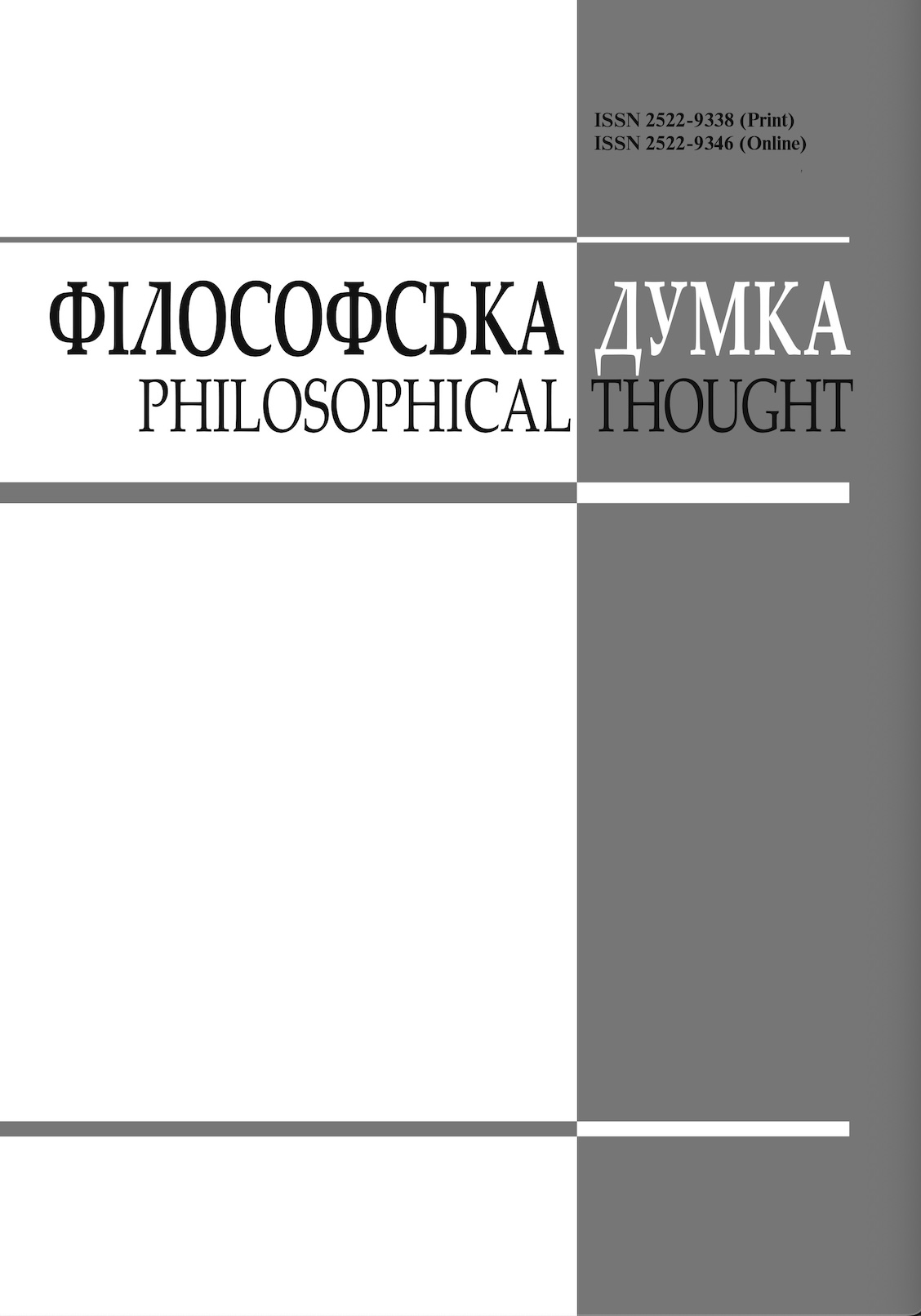WAR AND PHENOMENOLOGICAL NARRATIVES IN CONTEMPORARY PHILOSOPHICAL-ANTHROPOLOGICAL RESEARCH
DOI:
https://doi.org/10.15407/fd2024.04.073Keywords:
war, globalized world, tolerant sociality, conflict, Other, exploration of the world, worldview consciousnessAbstract
The author draws attention to the fact that the new millennium has not lived up to the high expectations that the ideological project of «tolerant universalism» and «multicultural liberalism», with its focus on consensus, solidarity, respect for the Other, and emphasis on universal liberal values, could become the ideology of global progress in the 21st century. Instead, misunderstandings, wars, conflicts, and violence have not disappeared from the world stage. On the contrary, there is an observable «budding» of new and new conflicts and wars. Conflict, like evil in general, has deep roots in both historical and psychological experience, as well as in the very ontology of humanity. Therefore, the issue is not about eliminating conflict but about qualitatively changing the direction of conscious human efforts – whether individual, collective, or socially organized. The author argues that, if restraint and tolerance are not cultivated, mutual destruction remains the alternative.
We enter the modern world (which is not unified, but globalized) through the intersubjective space, through dialogical truths, and so on. This requires the establishment of new forms of worldview, new approaches to examining phenomena in nature, society, and the human being. Clearly, today there is a preference for research ideas and principles related to the synergistic approach, self-organization, self-creation, and self-reproduction, both at the level of the macrocosm and the microcosm. Philosophically, these ideas resonate with existentialist and phenomenological narratives and philosophies. The author currently points to the presence of such approaches in the thought of domestic philosophers.
References
Baime, K. (2008). Political Theories of Modernity. [In Ukrainian]. Kyiv: Stylos. Bychko, I. (1981). Freedom as a Specific Form of Social Determination. [In Russian]. In: The Worldview Content of Categories and Laws of Materialist Dialectics (pp. 132-154). Kyiv: Naukova Dumka.
Bystrytskyi, E. (1996). The Conflict of Cultures and the Philosophy of Tolerance. [In Ukraine]. Political Thought, 3-4, 147-168.
Höffe, O. (2007). Democracy in the Age of Globalization. [In Ukrainian]. Kyiv: PPS-2002.
https://doi.org/10.1007/978-1-4020-5662-8
Ivanov, V. (1986). Worldview as a form of consciousness, self-determination, and culture of the individual. [In Russian]. In: Worldview Culture of the Individual (pp. 10-88) Kyiv: Naukova Dumka.
Krymskyi, S. (1989). Types and principles of rationality. [In Russian]. In: Rationality in Science and Culture (pp. 89-106). Kyiv: Naukova Dumka.
Krymskyi, S. (2010). The meaning of posthistory. [In Ukrainian]. Dzerkalo Tyzhnia, 6-7, February 20.
Levinas, E. (1971). Totalité et infini. Essai sur l'extériorité. Paris: Le Livre de Poche-Kluwer Academic.
Levinas, E. (1988). Autrement que savoir. Paris: Osiris.
Levinas, E., Castoriadis, C. (1999). Politics and Ethics. [In Ukrainian]. Kyiv: Ukrainian Philosophical Foundation.
Morin, E. (1991). La Methode. Livre 2: La vie de la vie. Paris: Seuil.
Parakhonskyi, B. (1989). Rationality in Spiritual and Intellectual Activity. [In Russian]. In: Rationality in Science and Culture (pp. 30-52). Kyiv: Naukova Dumka.
Popper, K. (1982). L'Univers irresolu. Paris: Hermann.
Ricoeur, P. (1990). Lectures 1. Autour du politique. Paris: Seuil.
Shynkaruk, V., Ivanov, V. (1988). Scientific Worldview and Socialist Culture. [In Russian]. Kyiv: Naukova Dumka.
Thuillier, P. (1991). La revanche du dieu Chaos. La Recherche, 232, May 1991. [Numéro spécial: La sciense du désordre].
Downloads
-
PDF (Українська)
Downloads: 121
Published
How to Cite
Issue
Section
License
Authors who publish with this journal agree to the following terms:
- Authors retain copyright and grant the journal right of first publication.
- Authors are able to enter into separate, additional contractual arrangements for the non-exclusive distribution of the journal's published version of the work (e.g., post it to an institutional repository or publish it in a book), with an acknowledgement of its initial publication in this journal.
- Authors are permitted and encouraged to post their work online (e.g., in institutional repositories or on their website) prior to and during the submission process, as it can lead to productive exchanges, as well as earlier and greater citation of published work (See The Effect of Open Access).


